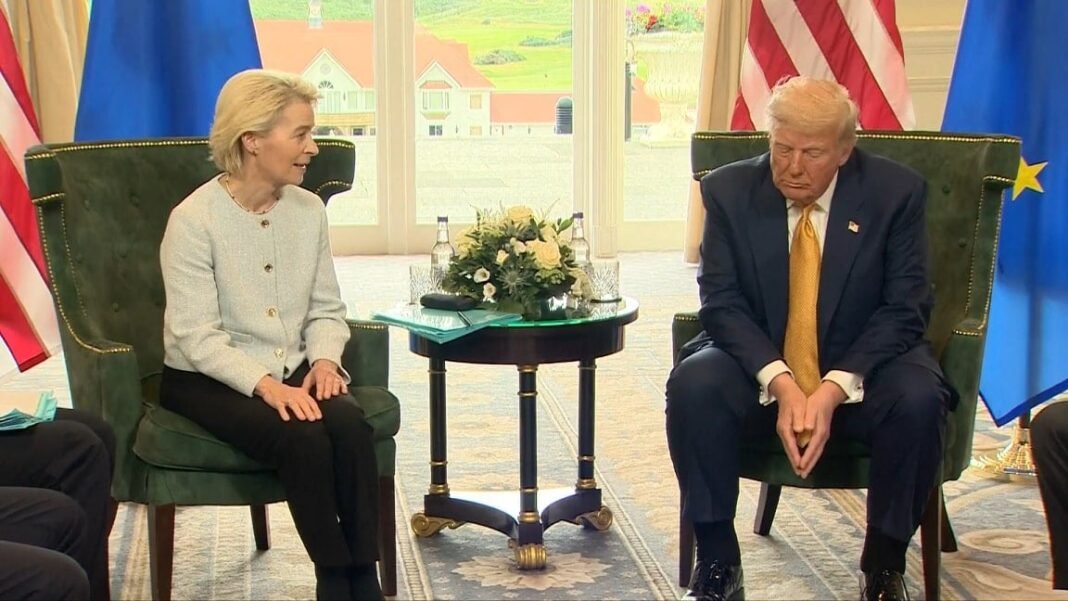
The United States and the European Union agreed on a framework trade deal on Sunday, setting a fifteen-percent U.S. import tariff on most EU goods. Meanwhile, U.S. steel and aluminium tariffs remain at fifty percent.
Following an hour-long meeting with European Commission President Ursula von der Leyen at his golf course in western Scotland, U.S. President Donald Trump said the EU will also agree to purchase USD 750 billion of energy and invest USD 600 billion more than planned in the U.S.
US – EU tariff deal comes days before deadline
The agreement comes days before Donald Trump’s deadline for imposing a 30 percent tariff on all imports from the European Union, which would go into effect on August 1.
According to Reuters, the 15 percent baseline tariff will be viewed by many in Europe as a poor outcome compared to the initial European ambition of a zero-for-zero tariff deal. However, it is better than the threatened 30 percent rate.
“I think this is the biggest deal ever made,” the U.S. President told reporters as he announced the deal.
“We have a trade deal between the two largest economies in the world, and it’s a big deal. It’s a huge deal. It will bring stability. It will bring predictability,” von der Leyen agreed.
Together, the EU and the US are a market of 800 million people.
And nearly 44 percent of global GDP.It’s the biggest trade deal ever ↓ https://t.co/rG3cHebXEk
— Ursula von der Leyen (@vonderleyen) July 27, 2025
Speaking at a later news conference, Von der Leyen explained that the fifteen percent tariff would be a ceiling, with the same rate applying to cars, pharmaceuticals, and semiconductors. The tariff treatment for alcoholic beverages has yet to be worked out.
The agreement also provides that Europe will replace Russian gas with purchases of energy from the U.S. worth USD 250 billion per year for the rest of Trump’s term.
U.S. import tariffs’ impact on the Greek economy
In a report dated July 15, the Swiss multinational financial services firm UBS analyzed the potential direct and indirect effects of the proposed 30 percent U.S. tariffs threatened by Donald Trump, and expected to take effect on August 1, on emerging European economies. According to the analysis, Greece ranked fourth among emerging markets in the EMEA region (Europe, the Middle East, and Africa), most exposed to these measures.
The impact was primarily due to the country’s concentrated export profile, as well as the small scale of most Greek export firms, which makes it difficult to adjust logistics or sales strategies quickly.
Greece’s adjustment capacity on U.S. tariffs will depend on the EU’s ability to negotiate targeted exemptions, how quickly Greek businesses can pivot to alternative markets, and whether companies can enhance the value-added component of their products to reduce tariff exposure or achieve strategic status.
The impact is expected to be most noticeable in 2026.


